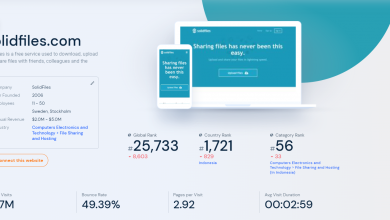What Are the Different Types of Servers That Exist Today?

The average server cost ranges from $400 to $3,000, depending on its type and size. It’s crucial to choose the right server type.
Too few server resources can negatively impact network performance and application functions. Too many server resources is a waste of valuable time and money.
Do you know how to choose the right server type? This article goes over the basic types of servers so you can choose the best server for your needs.
Types Of Servers
The server type depends on how the server runs and is maintained. Servers can be physical, virtual, or cloud-based. They can also be managed or unmanaged.
The best server type depends on many factors, including:
- Types of networks
- Server applications
- Performance needs
- Costs and budget
- Number of users
- Scalability
- Security and privacy
- Maintenance and tech support
Each type of server has pros and cons unique to your needs and situation. If you don’t have IT staff, for example, an unmanaged dedicated server could be too difficult and costly to maintain.
Or the best application server relies on high performance (dedicated), while the best client-server needs scalability (VPN).
1. Dedicated Server Vs. Virtualized Servers
A dedicated server refers to a physical server and its hardware. The entire server and its resources are dedicated to one client.
Virtual private servers (VPNs) use software to divide a physical server’s resources into multiple isolated servers for multiple clients. This is a cost-effective method to use the most resources a physical server can offer.
2. Unmanaged Vs. Managed Servers
An unmanaged server is a server you install, optimize, and maintain yourself. This generally includes having the physical server on-site.
The biggest perk of an unmanaged server is complete control over your server system. Your server can be fully optimized and flexible to your needs. This option might be too complex without any IT know-how, however.
A managed dedicated server is configured and maintained by a third party. Although you lose some server control and flexibility, you gain IT expertise for maintenance and support.
3. Cloud Servers
The latest server evolution is the cloud-server model. A cloud server is a type of virtual server. But instead of one physical server divided into multiple isolated servers, multiple servers are combined to form one “cloud” server.
A VPS cloud server has many benefits over traditional servers, including:
- More stability
- Faster performance
- Cheaper costs
- Higher scalability
Clouds can be public (managed) or private (unmanaged). Many companies deploy hybrid cloud solutions so they can combine the best of both options.
4. Hybrid Servers
A hybrid server is another relatively new type of server. It combines dedicated physical servers using virtual server software. The result is a network system with both dedicated server performance and cloud server benefits.
The Best Technology Solutions At Your Fingertips
Finding the best server depends on knowing the different types of servers. Now that you know all about server types, you’re ready to make informed choices.
Want to learn more about the latest technology solutions? Read up on more articles in our technology section!
For more valuable information visit the website



![[pii_email_96a71d706ac0e355e34a]](https://techybuzzz.com/wp-content/uploads/2022/04/pii_email_96a71d706ac0e355e34a-390x220.png)

